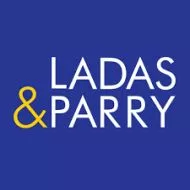A recent federal lawsuit, filed by Neiman Marcus and Bergdorf Goodman against domain name registrar Dotster, may anticipate a new technique for trademark owners to police their intellectual property rights online. The complaint, filed May 30, 2006 in U.S. District Court in the Western District of Washington, alleges that Dotster registered domain names that infringe the trademarks of the plaintiffs. The unique aspect of the complaint alleges that Dotster took advantage of its position as a registrar to register high-traffic, infringing domain names using an increasingly common practice known as "domain tasting," also referred to as "domain kiting" by GoDaddy’s Bob Parsons. The most recent publicly available data from VeriSign, the .com registry, indicate that Dotster may be only one of at least seven registrars "tasting" domain names.
Under the rules imposed by the Internet Corporation for Assigned Names and Numbers ("ICANN"), the entity charged with supervising the registration of domain names, a domain name registrar, such as Dotster, receives a refund of its registration fee if it deletes a domain name within five days of registration. The rule was intended to provide a short window of time to free a domain name registrant from payment for an erroneously registered domain name. Registrars that taste domain names take advantage of this rule by registering millions of domain names, measuring the web traffic that arrives at the domain names and deleting those that do not garner enough traffic to justify registration. The "domain tasters" earn advertising revenue from high-traffic domain names by resolving them to web pages incorporating pop-up advertisements and links to commercial websites specifically related to each domain name.
VeriSign’s March 2006 report reveals a dramatic difference between registrars with regard to the number of domain names deleted on a monthly basis. Although the vast majority of the 450 or so domain name registrars delete relatively few domain names per month, seven registrars, including Dotster, deleted more than one million domain names in the month of March alone. According to the report, Dotster registered a total of 946,953 domain names and deleted 1,920,658 domain names. The registrar that deleted the most domain names during the month, Belgiumdomains, LLC, registered 250,037 domain names and deleted 7,258,306 domains. In contrast, GoDaddy, the most vocal critic of the practice, registered 9,466,028 domain names in March and deleted only 141,182 domains. The discrepancy between the number of deletions per registrar reveals which registrars are taking advantage of the rules promulgated by ICANN.
The data by itself does not definitively establish that registrars with high delete rates are engaged in the same infringing activity alleged in the complaint. The report does not differentiate domain names that incorporate trademarks from those that do not, and, obviously, domain tasting is not actionable under a theory of trademark infringement unless the tasted domains violate the rights of a trademark owner. However, the extent of the high volume tasting activity of a limited number of registrars has led many in the industry to question how the extent of this practice could be economically cost- justified, at least absent abusive methods to garner additional returns on the time and effort required.
The infringing conduct asserted against Dotster goes far beyond evidence of mere domain tasting. Neiman Marcus and Bergdorf Goodman accuse Dotster of registering at least 26 domain names similar to the plaintiffs’ trademarks, such as bergdorfgoogman.com and neimanmarqus.com, for the registrar’s own commercial use. Most of the offending domains listed in the complaint seem to be obvious misspellings of the plaintiffs’ marks. The complaint alleges that Dotster is the registrant, as well as the registrar, of domain names containing complainants’ trademarked terms, and that the registrar is directly profiting from the domain names through advertising revenue and domain-name sales. The Whois information for each disputed domain name, as set forth in the complaint, either does not list a registrant or lists a false registrant, indicating that the domain names were registered by the registrar itself without identifiable registrants. Further, the html code for the web pages to which the disputed domain names resolve identifies Dotster as the client for advertising-revenue purposes. Finally, the complaint outlines correspondence between a Dotster employee and an investigator acting as a potential domain-name purchaser, as well as evidence of payment for the sale of domain names via checks deposited into Dotster’s bank account. This course of conduct, if proven, would indicate not only Dotster’s involvement in domain tasting, but also, and more importantly, that it is engaged in the practice of registering domain names containing trademarked terms for its own commercial benefit.
Therefore, the statistics presented in VeriSign’s March report do not demonstrate, per se, that the activities alleged against Dotster are common to other registrars. Nevertheless, the data suggest that lawsuits against high volume domain tasting registrars, who are also registrants, may be the next trend in the ongoing effort by trademark owners to police their intellectual property rights online. The Dotster case does, however, point to a potentially lucrative source of returns from short-term registrations, which present inherent difficulties for outside discovery and proof.
Trademark owners are increasingly faced with new domain name registrations that may result from domain tasting and therefore need to determine the best way to address them to stop infringement of their rights. Ladas & Parry LLP’s Digital Brands Practice counsels numerous clients on these issues to develop cohesive and cost-effective enforcement policies (www.digitalbrands.info). Ladas & Parry LLP’s Internet and Domain Name Watching services are also designed to assist brand owners by identifying and monitoring recent domain name registrations, including those registered by domain tasters, to effect brand protection strategies (http://tmw.ladas.com/).
The content of this article is intended to provide a general guide to the subject matter. Specialist advice should be sought about your specific circumstances.


